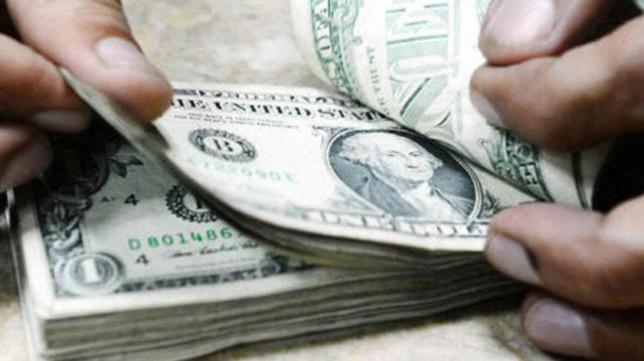Bangladesh's healthy foreign exchange reserves is set to come under stress in the wake of the rising import bill and sliding remittance flow, bankers said.
“The foreign exchange market may see a huge pressure in the coming days as import is rising faster than export. Also, the inflow of remittance is on a negative territory,” said a senior official of the Bangladesh Bank.
On June 14, foreign exchange reserve stood at $32.73 billion, enough to cover the import expenditure for eight months.
Earlier this month, the International Monetary Fund too raised questions about the adequacy of Bangladesh's foreign currency reserves and suggested the safe reserve limit of 9.6 months' import bill.
Remittance, which is a major source of foreign currency in Bangladesh, has declined more than 14 percent to $11.55 billion in the first 11 months of the fiscal year.
Rice import after several years and rising oil prices globally are expected to eat up Bangladesh's foreign exchange in the days to come, bankers said.
In the first 11 months of the fiscal year, imports grew 14.11 percent and exports 3.67 percent, according to data from the BB.
Subsequently, current account deficit also widened to $1.75 billion in the July-April period of fiscal 2016-17.
Capital machinery imports account for the mounting import bills: in the July-April period of the fiscal year, letters of credit settlement saw a 19 percent rise.
About one-tenth of the import payments were for capital machinery, which is a boon for an economy.
The import of capital machinery grew significantly due to the government's mega projects, said a senior official of a private bank.
Rising oil prices is posing another threat for Bangladesh's foreign currency reserves, he said.
The price of crude oil in the international market has increased to $56 a barrel from $30 between March 2016 and March 2017.
Major items that Bangladesh imports are machinery, cotton, iron and steel, mineral fuels including oil, plastic and plastic articles, vehicles and so on.
The central bank in its analysis for the January-March period commented that the strong growth in private sector credit and capital machinery import indicate a buoyant domestic demand.
However, it said the negative growth of remittance might dampen the domestic demand.
Private sector credit growth rose for five months in a row to stand at 16.2 percent at the end of April, which is close to the target set by the BB for the second half of the fiscal year.
news:daily star/21-jun-2017



